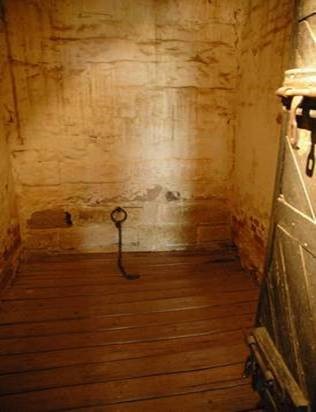This Persuasion Tip is very different—more of a “behind the curtain” view of some of the creative processes we use in helping you explain your case to a jury.
Being a Trial Consultant is a creative job.
Being an effective Trial Attorney is a creative job.
Ask yourself:
What are some ways my creative process works?
What kind of time and effort do I devote to creativity in developing my case themes and story line for the jury?
How many ideas do I keep and how many ideas do I reject in coming up with my case story? (the answer should be “lots of both”)
I gave my staff an assignment. We were all to try to develop a strategy for marketing the space pictured above as a destination resort—a time-share. We were then going to see if any pieces of those ideas could be used to explain our trial consulting services to attorneys. I chose the picture only because I liked the picture. It caught my eye for some reason when I was looking for images for an opening statement. Maybe it caught my eye by word association: it is a box—think outside the box—the jurors are in a jury box—jurors have to think outside the box inside a box (my mind is scary, eh?).
We made a bullet list of descriptors without doing any editing. That list included:
- As a place to go in retreat – to sit in total silence to gather your thoughts
- As a wine tasting room – set up a little bistro table and chairs
- As a place to send someone in “time-out”
- As a place to work in total solitude, writing a book, for instance
- Simple
- Natural light
- A positive “distressed” look (especially the wood floors)
- Safe
- Clean
- However, at this point, I struggle to deal with what feels to me like an “unpleasant-ness” as it concerns the chain, as it looks like this is an isolation or prison cell. Everything that’s hitting me is avoiding addressing it
Then, we asked ourselves, from this list, what concepts might relate to teaching lawyers about the benefits of pre-trial research? What we came up with are these three main concepts:
◊ A trial can be an uncomfortable experience for jurors, even though the physical environment might be fine, even rustic or historical. In the midst of that, we are expecting them to reflect and contemplate and debate coherently under some conditions of isolation.
◊ What if you were the person who got to reassure the jury that their service was a way for them to step out of their normal routine, to sit back and reflect on some new topic, and that, in a strange kind of way, this was a bit of a retreat (no phone calls, no bosses, etc.)?
◊ For attorneys, the hubbub of trial preparation in the final weeks often prohibits the ability to step back from the case, thoroughly reflect on the big issues, and allow the attorney to convey that sense of confidence to the jury. You need to set aside a contemplative time and space.
We had never really thought of these concepts in these terms before we did the exercise. It was fun and beneficial to see something from a different point of view.
One of the guarantees we make in helping you prepare for trial is that we “force” you to step back, look at the big issues, brainstorm, get creative, and figure out how to put the jury at ease for the job they have to do under potentially uncomfortable conditions.
Sometimes you have to be told to “think outside the box” for the jury who will be “in the box.”
We want to prepare you to walk into the courtroom and let the jury know that “everything will be all right.”
Share This Story, Choose Your Platform!
Click below to add your email address to our mailing list and receive the latest Persuasion Tips right in your inbox!

